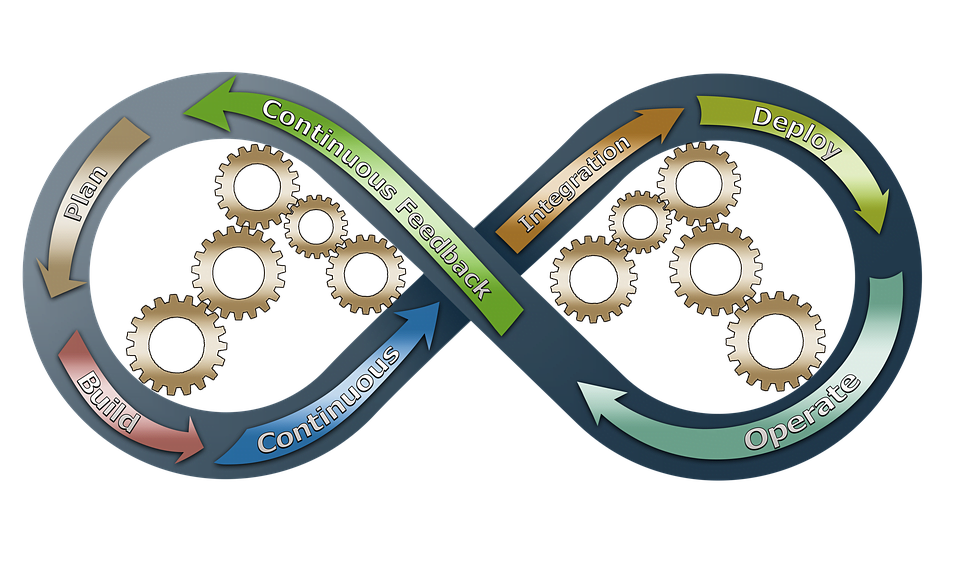Table of Contents
Businesses may encounter numerous misconceptions when it comes to electronic data interchange or EDI solutions. These myths can doubt their judgment of implementation decisions for these EDI solutions. How can you distinguish truth from fiction when considering whether an EDI implementation will benefit your company? EDI solutions have become an essential element of modern business operations. It provides efficient communication and data exchange among trading partners. However, many misconceptions still surround EDI solutions and their benefits. It’s crucial that organizations fully comprehend why adopting an EDI solution could bring such great returns! To fully appreciate its worth in their organizations.
Here we’ll disprove some common myths surrounding electronic data interchange (EDI). Understanding its true potential will allow your business to tap the full potential of this technology.
What is EDI?
EDI solutions between trading partners, allow businesses to exchange business documents electronically. This includes purchase orders, invoices, and shipping notices in an efficient format. All this with less manual data entry required and reduced errors. EDI solutions offer a secure exchange of information that simplifies operations while increasing productivity.
Businesses should disregard certain myths surrounding Electronic Data Interchange (EDI). One such myth suggests EDI solutions are only for large organizations; in reality, businesses of all sizes can gain from incorporating EDI solutions. It provides small and midsize enterprises with a level playing field in competing against larger organizations. All this by cutting costs while improving efficiency.
Prevent Costly Errors and Ensure Compliance With Ease By Connecting To Our Experts
Debunking EDI Myths
There are various myths that factor in when businesses want to implement EDI. Let’s take a look at the various myths surrounding EDI and debunk some of them.
Myth: EDI is expensive.
Fact – The belief is that EDI is too expensive and not worth the expenditure. This fallacy frequently rests on antiquated technology. However, in the previous few decades, technology has grown considerably, and EDI service providers can provide organizations with a variety of reasonably priced choices.
Using a basic EDI web portal, where you send and receive EDI messages, is a suitable alternative for companies trying to comply with retailer standards. Many people consider EDI to be a little expense necessary to keep their stores in business, even though it can cost as much as a monthly phone contract.
Additionally, EDI integration can prove to be incredibly economical. Although this approach may cost more than a web portal, the advantages more than makeup for the cost. Significant cost reductions are achieved with EDI integration, which automates manual operations and distributes documents electronically. According to some reports, processing an order manually costs about $38, while using EDI only costs $1.35.
Myth: EDI causes business processes to lag.
Many fear that their businesses may be negatively impacted by switching to EDI. Workflows are said to be slowed down by EDI’s interference with business operations.
In general, EDI implementation times can be short, contingent upon your needs and solution. Speed and productivity can be significantly increased if your EDI installation is properly staged and focused on achieving your primary goal first. Employees now have more time to work on other projects. Additionally, it lessens the possibility of mistakes and the time required to fix them. According to studies, EDI orders can be fulfilled in less than a day, however, paper orders can take up to 10 days.
Myth: EDI usage is declining.
Fact – It’s probable that remarks regarding the potential replacement of EDI with alternative technologies, such as APIs, have been made. In actuality, the majority of EDI solution providers today employ APIs. They should be viewed as merely another EDI connection protocol, similar to sFTP or AS2, rather than as an adversary of EDI. After all, while EDI adheres to a generic standard, APIs do not. This implies that onboarding new trading partners is quicker and simpler.
The use of EDI is, in reality, expanding globally. Almost sixty percent of American companies currently use EDI in their day-to-day operations.
Myth: Data is not protected by EDI solutions.
Fact – Contrary to popular belief, data in EDI is safe. This is despite the opinions of many suppliers. All EDI providers for the healthcare industry recognize the criticality of your company’s data. You can communicate highly secure electronic data with other companies and vendors by using healthcare EDI transactions. HIPAA compliance guarantees the secure flow of health data in electronic healthcare transactions. Data theft and improper handling are avoided by the enhanced security in an EDI procedure.
Myth – The EDI platform is difficult
Fact – You can dismiss them as “too technical” and completely shun their integration, from healthcare automation to EDI systems in the medical field. This is the most prevalent EDI system fallacy, and it keeps providers from utilizing them in their daily work. Using contemporary solutions like EDI software is crucial in this digital age when telehealth and mHealth are flourishing. In contrast to the misconception that it is difficult to use, EDI software solutions are simple to set up and can significantly increase your practice’s efficiency. The sensitivity of sophisticated software solutions, such as enhanced interoperability, simple application, and cost-effectiveness, can be reflected in an EDI software system, which can manage massive data volumes.
Myth – In small healthcare businesses, APIs will take the place of EDI
Fact – You could think that healthcare EDI software is unsuitable for usage in small practices and is only appropriate for major healthcare organizations with numerous partners. A common misconception among providers is that cloud EDI software is less suitable for small healthcare offices than APIs. However, smaller practices can effortlessly include electronic data interchange (EDI) software. Even in small practices, electronic data interchange software allows for the current, secure transmission of health informatics with established standards. APIs are not thought to be a good fit and are not recommended for transferring large amounts of data, particularly for small and medium-sized practices.
Myth – A new EDI system’s software requires some getting used to.
Fact – Process simplification, secure data sharing, and productivity gains are the three main objectives of EDI integration in the healthcare industry. No matter what EDI system is in place, healthcare staff needs time to get used to the intricacies of integrating EDI. This however is not true. Contrary to this perception, an EDI system has a very low learning curve. It won’t be long before you and your team get used to how it works. Using electronic health records and doing fast healthcare analytics are some of the simple applications of EDI systems. You won’t waste much time figuring out how EDI operates once it’s in place.
Experience the Efficency of EDI in Your Business Processes
Tips To Find The Best EDI Services In The USA
Finding the best EDI service providers in the USA requires considering several key aspects. EDI allows for electronic interchange between companies and thus replaces, for instance, sending purchase orders by post or fax. The reverse is called electronic document interchange, which envisages making this process of data exchange easier and more automatic. In doing so, efficiency will be improved, and at the same time, errors will be reduced. Here are a few tips that might help you choose an ideal provider:
:
Research and Compare Different EDI Service Providers in the USA:
Start by researching and comparing various EDI service providers located within the USA, seeking those that specialize in offering high-quality solutions and have established themselves with proven success in doing so. Look out for companies renowned for providing professional EDI solutions, as these will have more experience, reputation, and customer reviews to support them than less qualified options would.
Evaluate their array of EDI solutions:
When shopping for an EDI service provider, look for those offering an extensive array of solutions tailored specifically to meet your business requirements – this may include software solutions, EDI managed services, or cloud-based options – plus considering industry and size restrictions to find an EDI provider with what fits.
Assess their expertise and industry expertise:
As an intricate technology, EDI requires providers that possess both expert skills as well as in-depth industry expertise. Look for those who have worked with businesses within your sector before and understand its unique requirements and challenges, as well as tailored solutions and expert advice on best practices.
Investigate Their Integration Capabilities:
Integration is of great significance when implementing electronic data interchange (EDI). Before selecting an EDI provider, be certain they possess the capabilities of seamlessly integrating their solutions with any of your current systems, such as ERP (Enterprise Resource Planning) or accounting software systems in place, to facilitate seamless data exchange without interruption to business operations.
Evaluate their Customer Support and Service Level Agreements (SLAs):
For optimal EDI services, look for providers with superior customer support as well as comprehensive SLAs that address issues quickly if there’s ever downtime or issues arise, thus minimizing impactful downtime for your business.
Review Their Security Measures:
Data security is of utmost importance in electronic data interchange (EDI). Make sure the service provider you select offers robust measures to safeguard sensitive business data – for example, encryption, secure data centers, regular backups, and compliance with industry standards and regulations.
Assess the Scalability of Solutions:
Your business requirements could change with time; look for providers offering flexible EDI solutions that can grow with you to avoid having to switch providers later and ensure a seamless expansion as your business does so.
Request Demos and Referrals:
Before finalizing a decision on an EDI service provider, request demos and references from each of your shortlisted EDI providers. This will enable you to see their solutions in action while hearing directly from existing customers about their experiences – providing valuable insight into the usability and reliability of their services.
Trust Our EDI Solutions For Data Privacy
Final Thoughts
A lot of misconceptions and misinformation about EDI are out there, perpetuated by myths. Looking to dispel these wrong beliefs about electronic data interchange, companies need an explanation of the truth behind EDI to appreciate it fully and, therefore, take complete advantage of its benefits. By clarifying false beliefs about electronic data interchange and clearly explaining the truth about EDI, companies will be able to make more informed decisions which may yield improved efficiency, cost savings, improved communications capabilities, and stronger relationships between trading partners. Therefore, organizations have to continuously update their knowledge of EDI-related new developments and best practices if they wish to remain competitive in today’s world.
If you desire to get more assistance, connect with the experts at A3Logics. You get professionals at service to do the job for you. We can ensure that you get all the assistance you need.
FAQs
What Is Electronic Data Interchange (EDI)?
Electronic data interchange, or EDI, is the automated method of exchanging business documents. Specifically between different computer systems, which eliminates manual input of data entry entries. EDI allows for smooth communication among trading partners while streamlining processes in businesses.
Is Electronic Data Interchange (EDI) only suitable for large companies?
No, EDI is not only for large businesses – these benefits can extend to any industry of any type and be very useful for companies of any size. Many small and medium-sized businesses today are looking at the adoption of EDI technology just to stay competitive in the digital marketplace.
Is EDI secure?
EDI provides a secure way to exchange business data because it involves the use of encryption and other protection measures during transmission, audit trails, and validation processes and keeps the audit trails so that there would be no loss of integrity and confidentiality of data.
Will an Electronic Data Interchange System Implementation Represent an Investment of Consideration?
Though EDI might be a little expensive in the area of one-time investments, as in software license fees or training, its long-term advantages outweigh such an initial investment. This process helps reduce manual data entry costs and paper processes through its faster processing times of transactions and increases order accuracy. In addition to this, EDI achieves faster processing speeds for orders, therefore improving trading partner relationships and increasing order speed and accuracy.
Will EDI integrate properly with my current business systems?
Yes, EDI software can be integrated into the business systems you already have in place. These would include Enterprise Resource Planning and Customer Relationship Management. Customizable EDI solutions allow data to flow through these systems in a much easier fashion, automating each one being used within the organization.






